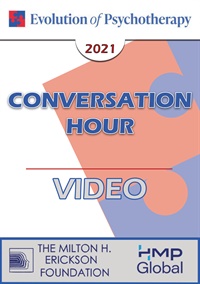
- Average Rating:
- Not yet rated
- Topic Areas:
- Addiction | Conversation Hours
- Categories:
- Evolution of Psychotherapy | Evolution of Psychotherapy 2021
- Faculty:
- Claudia Black, PhD
- Course Levels:
- Master Degree or Higher in Health-Related Field
- Duration:
- 1 hour
- Format:
- Audio and Video
- Original Program Date:
- Dec 04, 2021
- Short Description:
- The acronym ACA or ACoA has been a part of the therapy community for several decades now. As the pioneer in the framework for its meaning and influence in the recovery field , Claudia Black will discuss her history with the meaning and the value this terms offers the client. She will also offer a framework for healing the family of origin issues that often contribute to depression, anxiety, relationship conflict and addiction relapse.
- Price:
- $59.00 - Base Price
Tags: Addiction
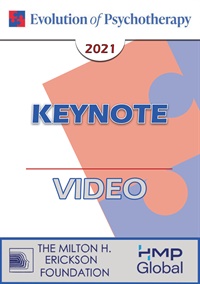
- Average Rating:
- Not yet rated
- Topic Areas:
- Addiction | Attachment | Couples Therapy | Keynotes | Love | Relationships
- Categories:
- Evolution of Psychotherapy | Evolution of Psychotherapy 2021
- Faculty:
- Helen E. Fisher, PhD
- Course Levels:
- Master Degree or Higher in Health-Related Field
- Duration:
- 1 hour
- Format:
- Audio and Video
- Original Program Date:
- Dec 03, 2021
- Short Description:
- Is technology changing love? Why do you fall in love with one person rather than another? Why is the rejected brain primed for psychotherapy? How can you use neuroscience to keep love alive? And where are we headed in our digital age? Anthropologist and neuroscientist Dr. Helen Fisher uses her brain scanning work (fMRI) to discuss three basic brain systems that evolved for mating and reproduction--the sex drive, romantic love, and attachment; each plays a pivotal role in human health and happiness. And she uses her data on 50,000 single Americans to explain a new (and positive) trend in courtship, what she calls “slow love.” She then discusses her data on the biological foundations of human personality—specifically four basic styles of thinking and behaving that impact love relationships and all other social interactions.
- Price:
- $59.00 - Base Price

- Average Rating:
- Not yet rated
- Topic Areas:
- Addiction | Great Conversations
- Categories:
- Evolution of Psychotherapy | Evolution of Psychotherapy 2021
- Faculty:
- Jeffrey Zeig, PhD | Gabor Maté
- Course Levels:
- Master Degree or Higher in Health-Related Field
- Duration:
- 1 hour
- Format:
- Audio and Video
- Original Program Date:
- Dec 01, 2021
- Short Description:
- Great Conversation on the topic of Addiction from the 2021 Evolution of Psychotherapy Conference. Featuring Jeffrey Zeig and Gabor Maté.
- Price:
- $59.00 - Base Price
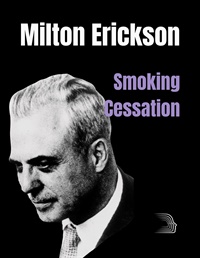
- Average Rating:
- Not yet rated
- Topic Areas:
- Ericksonian Hypnosis and Therapy Techniques | Milton Erickson | Addiction | Habits | Tailoring | Hypnosis
- Categories:
- Erickson Streaming Video Collection | Erickson Materials | Milton H. Erickson Collections
- Faculty:
- Jeffrey Zeig, PhD | Milton H. Erickson, MD
- Course Levels:
- Master Degree or Higher in Health-Related Field
- Duration:
- 1h 14m
- Format:
- Audio and Video
- Original Program Date:
- May 07, 2021
- Short Description:
- A client asks Erickson to help him stop smoking tobacco. Rather than using a formula, Erickson tailors a treatment approach to both address underlying problems and elicit resources.
- Price:
- $39.95 - Base Price

- Average Rating:
- Not yet rated
- Topic Areas:
- Workshops | Eating Disorders | Ericksonian Hypnosis and Therapy Techniques | Addiction | Hypnosis
- Categories:
- Erickson Congress | Erickson Congress 2019
- Faculty:
- Albina Tamalonis, PsyD
- Duration:
- 1 Hour 57 Minutes
- Format:
- Audio Only
- Original Program Date:
- Dec 15, 2019
- Short Description:
- During the first hour of this workshop the specific treatment ideas targeting Eating Disorders will be presented. Also, the workshop will delineate how an eating disorder is an addiction and present the underlying issues, which need to be addressed because of an addiction’s multi-dimensional infiltration. The remaining hour will be a demonstration of Ericksonian Hypnosis on a volunteer who wants to lose or gain any amount of weight. You will see: a Ericksonian diagnostic interview which focuses on the present where the solutions can be found; an Ericksonian induction using conscious/unconscious dissociation; a Ericksonian suggestion phase tailored to fit the patient; and a reorientation out of trance. There will be some time for questions and discussion.
- Price:
- $15.00 - Base Price
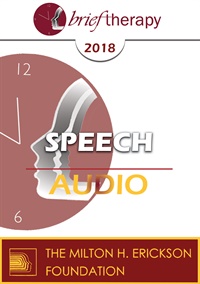
- Average Rating:
- Not yet rated
- Topic Areas:
- Speeches | Trauma | Neurobiology | Neuroscience | Research | Addiction | Memory
- Categories:
- Brief Therapy Conference | Brief Therapy Conference 2018
- Faculty:
- Janina Fisher, PhD
- Duration:
- 1:05:26
- Format:
- Audio Only
- Original Program Date:
- Dec 09, 2018
- Short Description:
- Neuroscience research has established why it is that trauma results in a fragmented narrative along with a ‘living legacy’ of enduring effects. The survival responses that preserve life and integrity under threat do not diminish once safety is obtained. Meant to warn us of impending danger, these easily re-activated survival responses continue to re-evoke the events of long ago decades after they are over. Once baffling and frustrating to treat, the evolution of new neurobiologically-informed treatments offers new, hopeful answers to the aftermath of trauma: the chronic fear of danger, dread of impending doom, loss of hope or energy, the longing for human connection, and self-destructive and addictive behavior.
- Price:
- $15.00 - Base Price

Credit available - Click Here for more information
- Average Rating:
- Not yet rated
- Topic Areas:
- Addiction | Keynotes | Continuing Education | Love | Couples Therapy | Neuroscience | Sex and Sexuality
- Categories:
- Couples Conference | Couples Conference 2018 | Online Continuing Education
- Faculty:
- Helen E. Fisher, PhD
- Course Levels:
- Master Degree or Higher in Health-Related Field
- Duration:
- 57:05
- Format:
- Audio and Video
- Original Program Date:
- May 04, 2018
- Short Description:
- Biological anthropologist Helen Fisher discusses three brain systems that evolved for mating and reproduction: the sex drive; feelings of intense romantic love; and feelings of deep attachment to a long term partner. She then focuses on her brain scanning research (using fMRI) on romantic rejection and the trajectory of love addiction following rejection. She concludes with discussion of the brain circuits associated with long-term partnership happiness and the future of relationships in the dig
- Price:
-
Sale is $29.00
price reduced from Base Price - $59.00
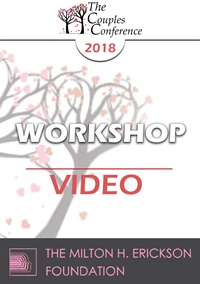
Credit available - Click Here for more information
- Average Rating:
- Not yet rated
- Topic Areas:
- Addiction | Couples Therapy | Workshops | Continuing Education | Love | Neurobiology | Neuroscience
- Categories:
- Couples Conference | Couples Conference 2018 | Online Continuing Education
- Faculty:
- Helen E. Fisher, PhD
- Course Levels:
- Master Degree or Higher in Health-Related Field
- Duration:
- 1:57:48
- Format:
- Audio and Video
- Original Program Date:
- May 04, 2018
- Short Description:
- Biological Anthropologist Helen Fisher discusses four broad basic styles of thinking and behaving associated with four primary brain systems: the dopamine, serotonin, and testosterone and estrogen/oxytocin systems. She discusses why people are predisposed to love one person rather than another (mate choice). She hypothesizes that individuals who primarily express of the constellation of traits linked with each of these brain systems may be predisposed to different forms of love addiction, includ
- Price:
-
Sale is $29.00
price reduced from Base Price - $59.00
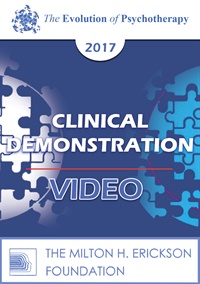
EP17 Clinical Demonstration 10 - Learn to Read Brain Scans: 50 cases in 60 Minutes - Daniel Amen, MD
Credit available - Click Here for more information
- Average Rating:
- Not yet rated
- Topic Areas:
- Clinical Demonstrations | Neuroscience | Psychotherapy | Addiction | Anxiety | Attention Deficit Disorder (ADD) | Depression | Schizophrenia
- Bundle:
- EP17 Video Stream Build a Bundle
- Categories:
- Evolution of Psychotherapy | Evolution of Psychotherapy 2017 | Online Continuing Education
- Faculty:
- Daniel Amen, MD
- Course Levels:
- Master Degree or Higher in Health-Related Field
- Duration:
- 58:58
- Format:
- Audio and Video
- Original Program Date:
- Dec 15, 2017
- Short Description:
- Based on the world's largest database of brain SPECT (single photon emission computed tomography) scans, Dr. Amen will teach attendees about brain SPECT imaging and then show 50 cases in 60 minutes, including cases of depression, anxiety, attention deficit hyperactivity disorder, posttraumatic stress disorder, schizophrenia, traumatic brain injury, addiction, and dementia.
- Price:
-
Sale is $29.00
price reduced from Base Price - $59.00
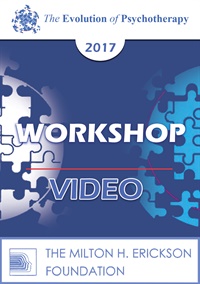
Credit available - Click Here for more information
- Average Rating:
- Not yet rated
- Topic Areas:
- Workshops | Post-Traumatic Stress Disorder (PTSD) | Trauma | Storytelling | Constructive Narrative | Addiction | Abuse | Borderline | Psychotherapy
- Bundle:
- Learning Track - EP17 Trauma Stream | EP17 Video Stream Build a Bundle
- Categories:
- Evolution of Psychotherapy | Evolution of Psychotherapy 2017 | Evolution of Psychotherapy Trauma Learning Track | Online Continuing Education
- Faculty:
- Donald Meichenbaum, PhD
- Course Levels:
- Master Degree or Higher in Health-Related Field
- Duration:
- 2:48:12
- Format:
- Audio and Video
- Original Program Date:
- Dec 13, 2017
- Short Description:
- Ways to implement the core tasks of psychotherapy with patients who evidence PTSD and co-morbid disorders of prolong and complicated grief, Substance Abuse Disorders and Borderline Personality Disorders. A case conceptualization model of risk and protective factors and incorporates a constructive narrator perspective will be presented.
- Price:
-
Sale is $29.00
price reduced from Base Price - $59.00
Please wait ...

